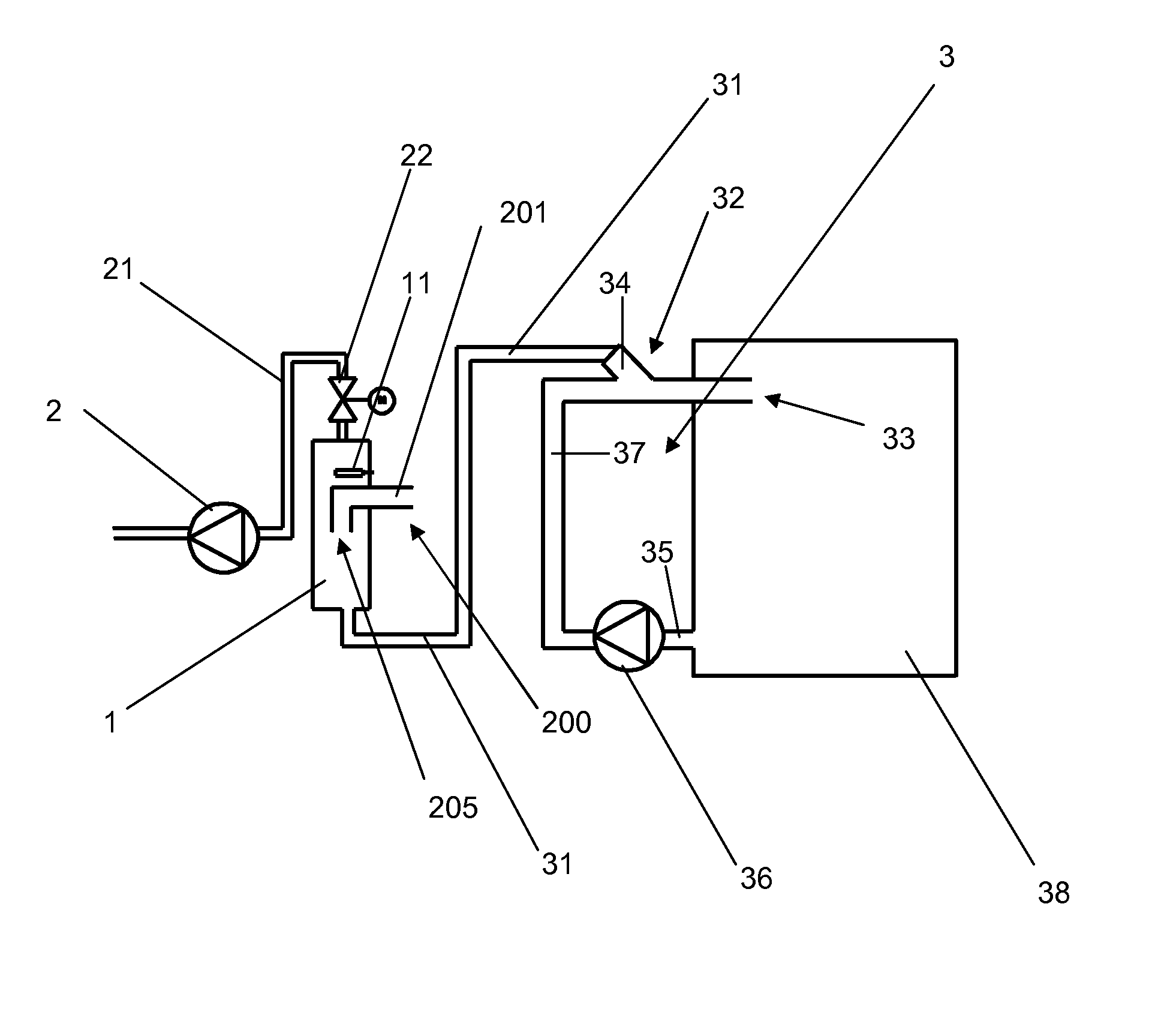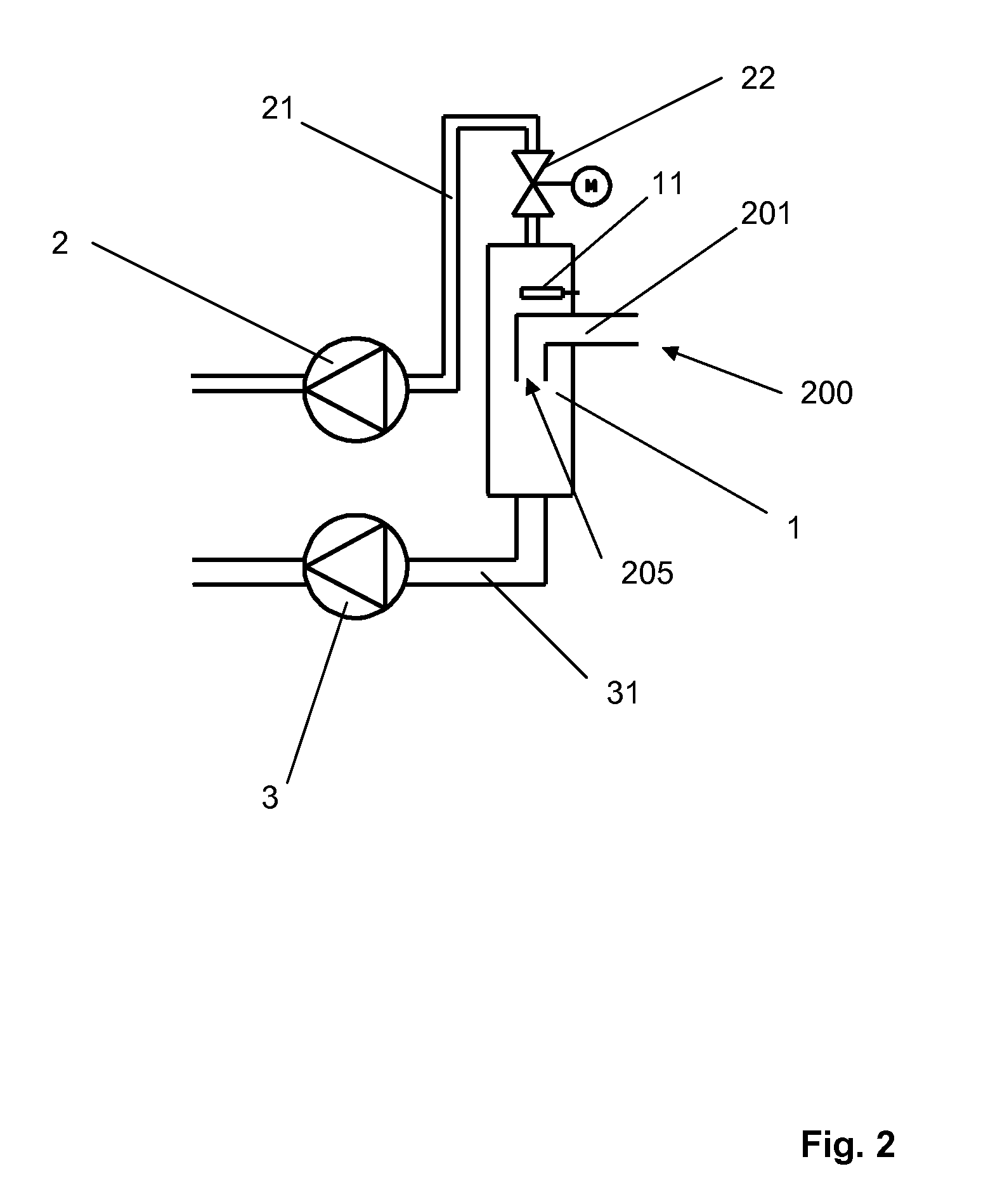Vacuum sewage system
a sewage system and vacuum technology, applied in the direction of sewage draining, flushing devices, water closets, etc., can solve the problems of low degree of efficiency, large space requirements, and large solution requirements, and achieve the effect of reducing space requirements and effective sewage transportation
- Summary
- Abstract
- Description
- Claims
- Application Information
AI Technical Summary
Benefits of technology
Problems solved by technology
Method used
Image
Examples
first embodiment
[0042]FIG. 2 shows the on-line separator device 1 with two pump means coupled in parallel to the on-line separator device 1. The first pump means 2 is a vacuum pump connected to the on-line separator device 1 by means of a conduit 21 provided with a first valve means 22, a shut-off valve, which is arranged on the suction side of the vacuum pump, between the vacuum pump and the on-line separator device 1. This first valve means 22 is not necessary for the appropriate functioning of the arrangement, but advantageous as a safety feature. The second pump means 3 is a liquid pump, which also should have the capacity to pump air, the suction side of which is connected to the on-line separator device 1 by means of a conduit 31. The two pump means are defined and discussed in more detail above.
[0043]The on-line separator device 1 is arranged in the vacuum sewer piping 200. With particular reference to FIG. 1, it is arranged in connection with the collector 201, whereby the sewage flow in th...
second embodiment
[0058]FIG. 3 shows the on-line separator device 1 with two pump means coupled in parallel to the on-line separator device 1. The first pump means 2 is a vacuum pump connected to the on-line separator device 1 by means of a conduit 21 provided with a first valve means 22, a shut-off valve, which is arranged on the suction side of the vacuum pump, between the vacuum pump and the on-line separator device 1. The second pump means 3 is connected to the on-line separator device 1 by means of a conduit 31. The second pump means 3 comprises a liquid jet pump 32 and a liquid pump 36 connected to a circulation tank 38. The liquid collected in the circulation tank 38 is circulated by the liquid pump 36 to the liquid jet pump 32 in order to produce a suction effect in the conduit 31 for pumping mainly sewage from the sewage flow flowing into the on-line separator device 1 and further into the circulation tank 38. The second pump means 3 corresponds to an ejector system. The two pump means are d...
PUM
 Login to View More
Login to View More Abstract
Description
Claims
Application Information
 Login to View More
Login to View More - R&D
- Intellectual Property
- Life Sciences
- Materials
- Tech Scout
- Unparalleled Data Quality
- Higher Quality Content
- 60% Fewer Hallucinations
Browse by: Latest US Patents, China's latest patents, Technical Efficacy Thesaurus, Application Domain, Technology Topic, Popular Technical Reports.
© 2025 PatSnap. All rights reserved.Legal|Privacy policy|Modern Slavery Act Transparency Statement|Sitemap|About US| Contact US: help@patsnap.com



